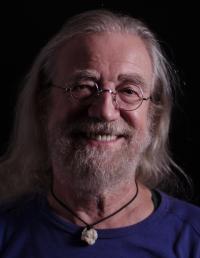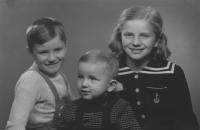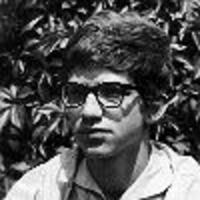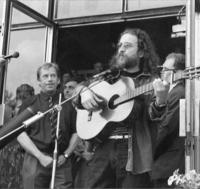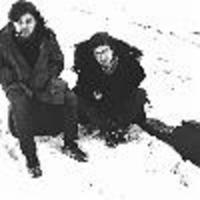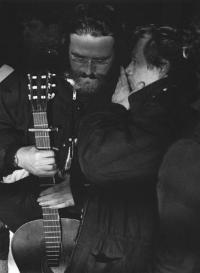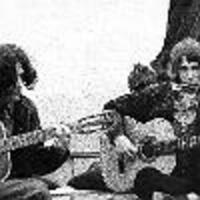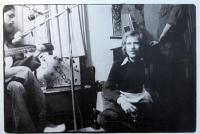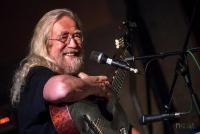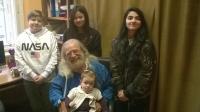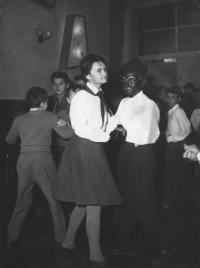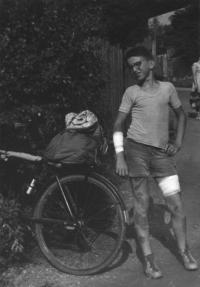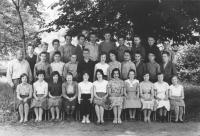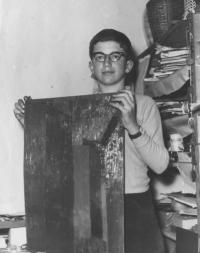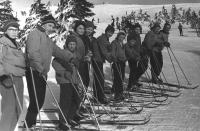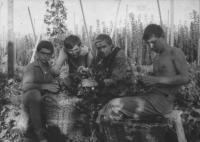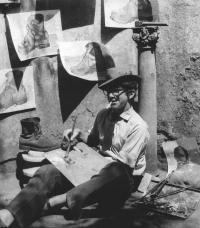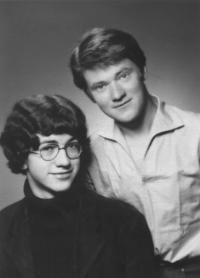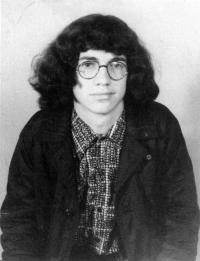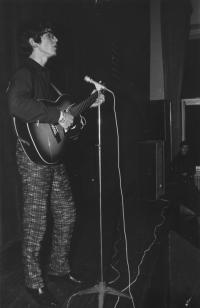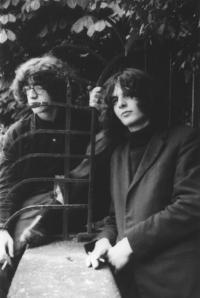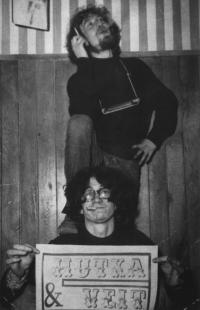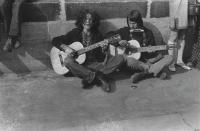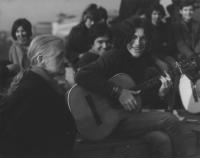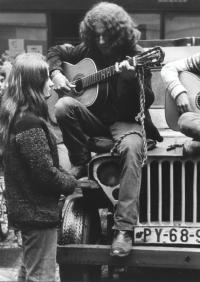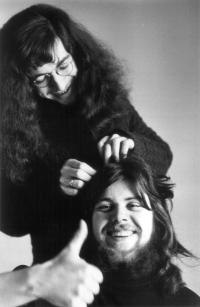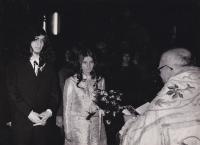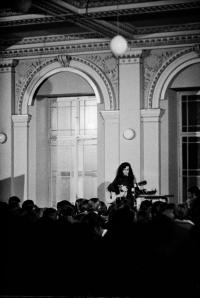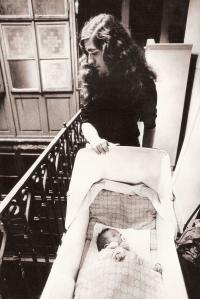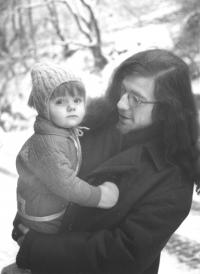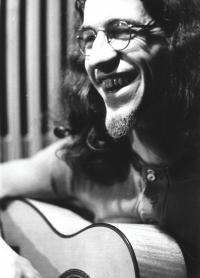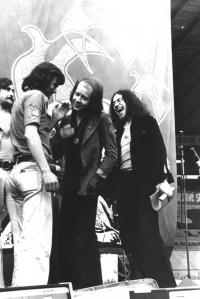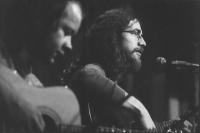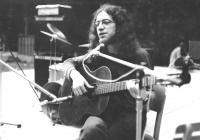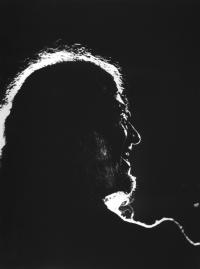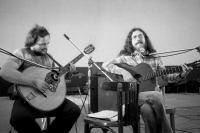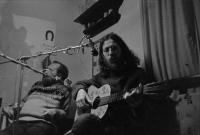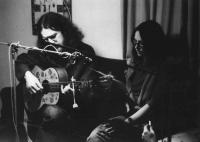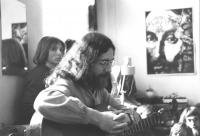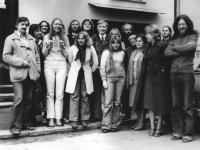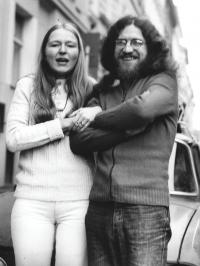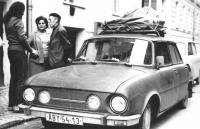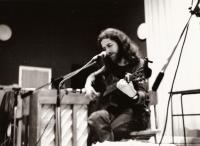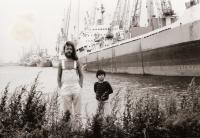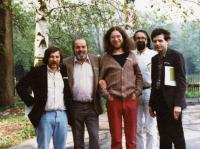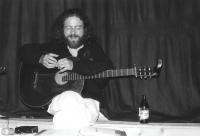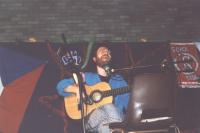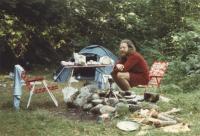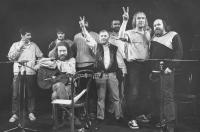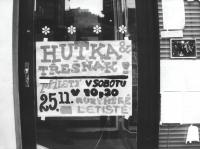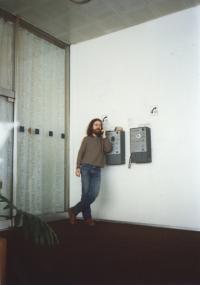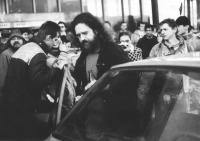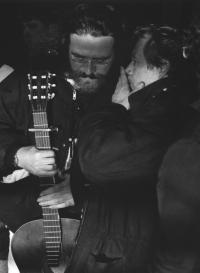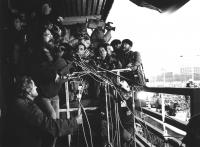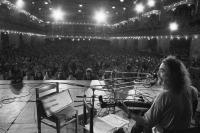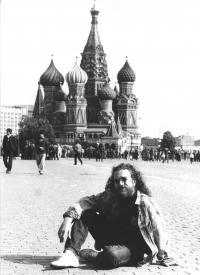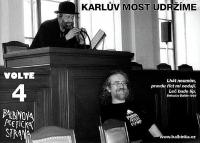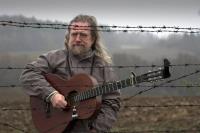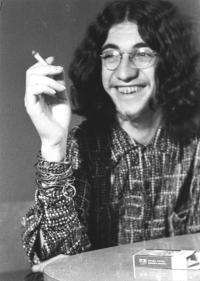A singer is suspicious everywhere and every time
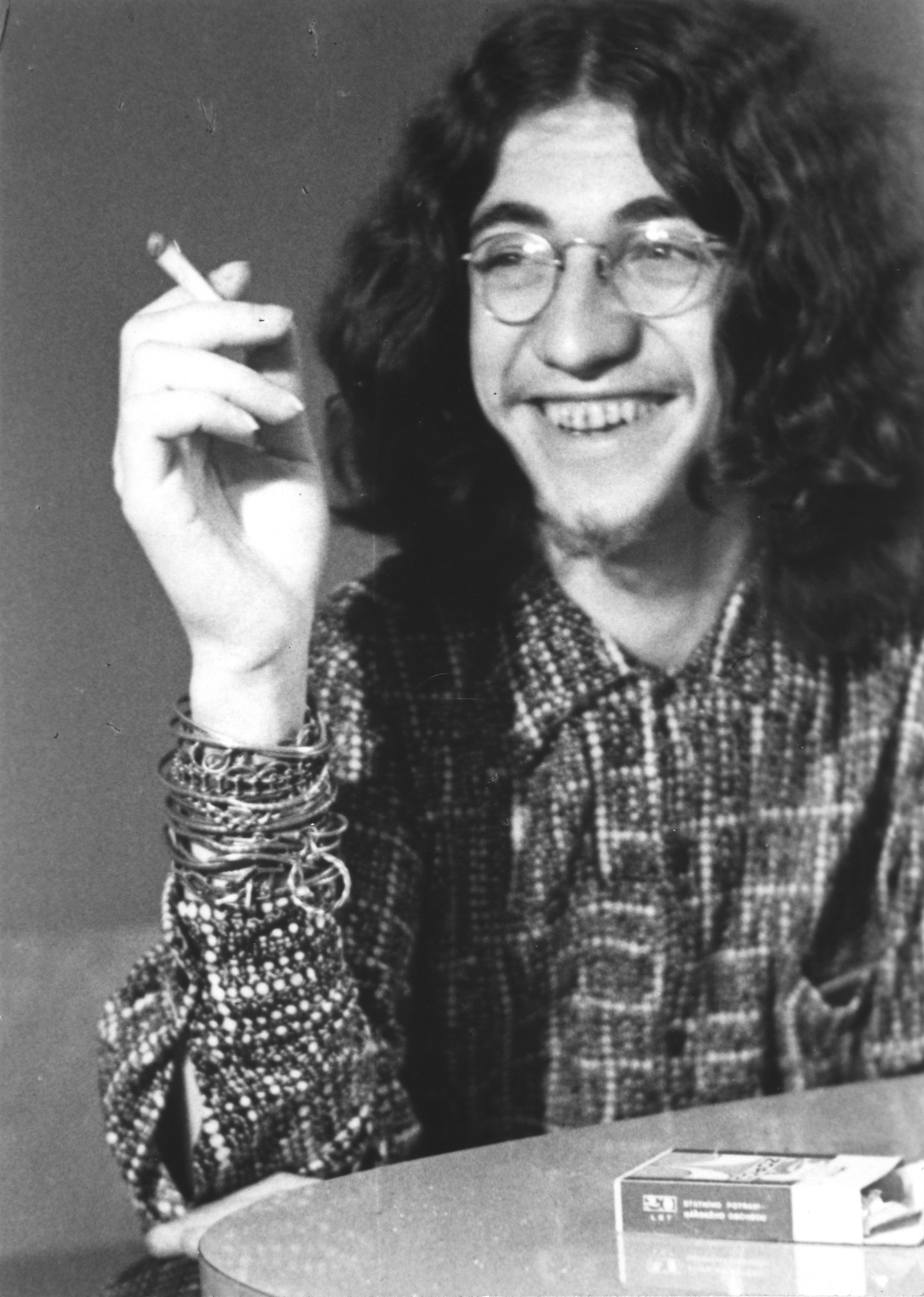
Download image
Jaroslav Hutka was born on April 21, 1947, in Olomouc into a business family. In 1952 the family was forced to leave Olomouc and settle in Bouzov, as a part of the plan to move capitalists out of the city. Two years later, however, they were ordered to return to Olomouc. In 1962, Hutka moved to Prague to study Secondary Art School, specialising in painting. He left the school in the third year without degree and in 1966 moved in with Vladimír Veit, with whom he started making music. Since 1967 he has performed with his own repertoire, first with Veit, later with Petr Kalandra. In 1968 he and Kalandra were pioneers in performing on the Charles Bridge, but they soon stopped in order to be able to join the artistic group Pod plachtou 68. After the Soviet occupation in 1968 Hutka focused on folk music, namely on songs from the collection of František Sušil – Moravian National Songs. In the early 1970s, he was one of the co-founders of the ensemble Tyjátr písničkářů (The Theatre of Singers), in 1972 he became one of the founders of the Šafrán (Saffron), which performed until the mid of the decade without any major intervention by the Secret Police. After 1975, however, the regime got interested in Hutka and since 1977 there was a pressure by the Secret Police on him to emigrate. In 1978, Jaroslav Hutka and his wife Daniela left for emigration in the Netherlands. After 1985 he started making concerts in clubs of compatriots all over the world and in late 1988 he moved to Germany. He performed during the demonstrations of the 1989 revolution and then became a part of Václav Havel’s presidential campaign. Although he announced the end of his career in 1997 he started making new songs in 2006 and still performs today.
